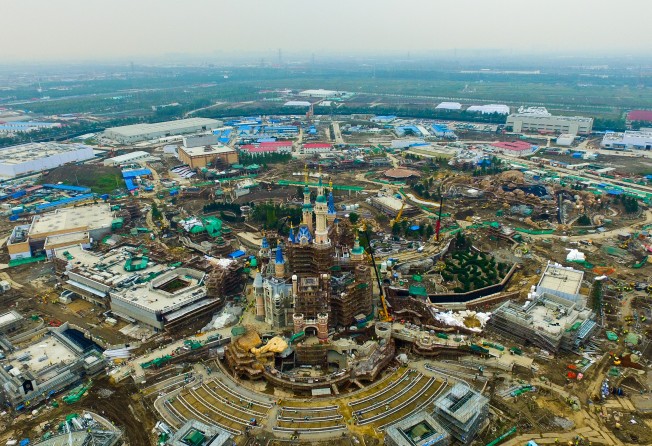China’s two Disneylands: competitors or complementary attractions?
Hong Kong should no longer take advantage of delays in building major attractions on the mainland

Over the years, every new report of progress at Shanghai Disneyland has touched a nerve with Hongkongers. So when it was announced recently that its grand opening would be in June this year, to many in the city, especially those in the local tourism industry, the instant reaction was: so the day is finally coming.
More interestingly, the timing of Shanghai Disney’s opening will be very special – the horse month of the Year of the Monkey. In traditional Chinese culture, when one loses hope amid endless waiting, a very colloquial saying is: “Do I have to wait until the horse month of the monkey year?”
According to Chinese zodiac calculations, such a time comes every 12 years, which is not very long. However, it has become the traditional way of expressing one’s frustration over a lengthy wait.
Many mainlanders, especially Shanghainese, have all of a sudden realised that the horse month of the monkey year doesn’t necessarily mean hopelessness because sometimes dreams do come true. Indeed, 2016 is the Year of the Monkey, and mid-June is the horse month in the Chinese calendar.
Robert Iger, chairman and CEO of the Walt Disney Company, said the Shanghai theme park “reflects Disney’s legendary storytelling along with China’s rich culture”, adding that “we’re looking forward to showing it to the world and sharing it with the people of China for generations to come”.
It has taken this US$5.5 billion mega project more than 15 years from negotiation to completion, longer than the 12-year-cycle for a horse month in a monkey year, but it has proved to be a fruitful wait. No wonder many joked that Shanghai Disney had injected new meaning into the concept of “waiting” in Chinese – that patience can be rewarding.
For years, “waiting” for the completion of Shanghai Disney, the first on the mainland but the second in China, always had a direct connection with Hong Kong, which saw its own Disney theme park open back in 2005, two years after the city was hit by the deadly Sars epidemic.
Then chief executive Tung Chee-hwa, who was personally involved in introducing the project to Hong Kong, had very much hoped to boost confidence and tourism through this joint venture. In a significant gesture of support, Beijng sent Zeng Qinghong, then the vice-president in charge of Hong Kong affairs, to the city to officiate at the opening.
Since then, it has become an open secret that those behind Shanghai Disney, which was first envisaged in the early 2000s, were asked by Beijing to slow down to give time for its Hong Kong counterpart to grow.
I still remember vividly those years, during the annual National People’s Congress and Chinese People’s Political Consultative Conference meetings in Beijing. Hong Kong reporters would always chase after Shanghai officials to ask when China’s financial hub would start to build the nation’s second Disneyland.
We wanted to know if Shanghai would compete with Hong Kong by having a much bigger theme park, but what we usually got were the standard answers: Shanghai and Hong Kong were brothers; if Shanghai ever built a Disneyland, it would be because a country as big as China needed two, and not because it wanted to beat Hong Kong.
That was back in the day. Now it does seem that having two Disney theme parks in China doesn’t necessarily mean they will battle each other, as the two will target different visitors with different features – although the Shanghai one, with two hotels and six themed lands, is much bigger.
Many put the blame for a decline in visitors to Hong Kong on the lack of new attractions. If that was the real reason for the “chilly winter” of the industry, the solution should be easy.
More worrying is the decline in Hong Kong’s image as a city with strong hospitality and quality services. The recent infighting within the industry over the introduction of new regulatory measures is a good example.
Hopefully, it won’t take too long until the horse month of the monkey year comes when Hong Kong can rebuild its strengths to attract tourists with quality services, rather than having to take advantage of delays or a lack of competitive projects in mainland cities.
Those days have long gone!